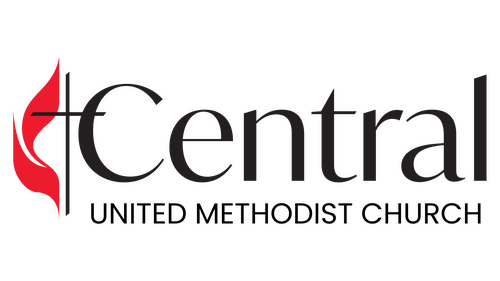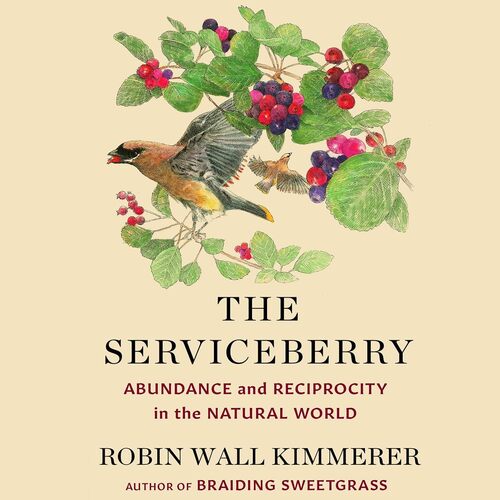Week 4 Discussion
In preparation for this week's discussion please read Chapters 6 and 7 of The Serviceberry. As you finished the book what did you feel? How were you, if at all, changed by this work?
In reflection on the two chapters consider the following questions:
Scripture Readings:
Suggested Additional Readings:
Excerpts from Wendell Berry’s The Unsettling America (To read the whole essay Click Here)
“The terms exploitation and nurture, on the other hand, describe a division not only between persons but also within persons. We are all to some extent the products of an exploitive society, and it would be foolish and self-defeating to pretend that we do not bear its stamp.
Let me outline as briefly as I can what seem to me the characteristics of these opposite kinds of mind. I conceive a strip-miner to be a model exploiter, and as a model nurturer I take the old-fashioned idea or ideal of a farmer. The exploiter is a specialist, an expert; the nurturer is not. The standard of the exploiter is efficiency; the standard of the nurturer is care. The exploiter’s goal is money, profit; the nurturer’s goal is health – his land’s health, his own, his family’s, his community’s, his country’s. Whereas the exploiter asks of a piece of land only how much and how quickly it can be made to produce, the nurturer asks a question that is much more complex and difficult: What is its carrying capacity? (That is: How much can be taken from it without diminishing it? What can it produce dependably for an indefinite time?) The exploiter wishes to earn as much as possible by as little work as possible; the nurturer expects, certainly, to have a decent living from his work, but his characteristic wish is to work as well as possible, the competence of the exploiter is in organization that of the nurturer is in order – a human order, that is, that accommodates itself both to other order and to mystery. The exploiter typically serves an institution or organization; the nurturer serves land, household, community place. The exploiter thinks in terms of-numbers, quantities, ‘hard facts’; the nurturer in terms of character, condition, quality, kind.”
“Food is not a weapon. To use it as such – to foster a mentality willing to use it as such – is to prepare, in the human character and community, the destruction of the sources of food. The first casualties of the exploitive revolution are character and community. When those fundamental integrities are devalued and broken, then perhaps it is inevitable that food will be looked upon as a weapon, just as it is inevitable that the earth will be looked upon as fuel and people as numbers or machines. But character and community – that is, culture in the broadest, richest sense – constitute, just as much as nature, the source of food. Neither nature nor people alone can produce human sustenance, but only the two together, culturally wedded.”
In preparation for this week's discussion please read Chapters 6 and 7 of The Serviceberry. As you finished the book what did you feel? How were you, if at all, changed by this work?
In reflection on the two chapters consider the following questions:
- What does Community look like?
- What is the difference between abundance and scarcity?
- How can we be agents of transformation moving from tragedy to hope?
Scripture Readings:
- John 6:35-40
- Acts 4: 32-37
Suggested Additional Readings:
Excerpts from Wendell Berry’s The Unsettling America (To read the whole essay Click Here)
“The terms exploitation and nurture, on the other hand, describe a division not only between persons but also within persons. We are all to some extent the products of an exploitive society, and it would be foolish and self-defeating to pretend that we do not bear its stamp.
Let me outline as briefly as I can what seem to me the characteristics of these opposite kinds of mind. I conceive a strip-miner to be a model exploiter, and as a model nurturer I take the old-fashioned idea or ideal of a farmer. The exploiter is a specialist, an expert; the nurturer is not. The standard of the exploiter is efficiency; the standard of the nurturer is care. The exploiter’s goal is money, profit; the nurturer’s goal is health – his land’s health, his own, his family’s, his community’s, his country’s. Whereas the exploiter asks of a piece of land only how much and how quickly it can be made to produce, the nurturer asks a question that is much more complex and difficult: What is its carrying capacity? (That is: How much can be taken from it without diminishing it? What can it produce dependably for an indefinite time?) The exploiter wishes to earn as much as possible by as little work as possible; the nurturer expects, certainly, to have a decent living from his work, but his characteristic wish is to work as well as possible, the competence of the exploiter is in organization that of the nurturer is in order – a human order, that is, that accommodates itself both to other order and to mystery. The exploiter typically serves an institution or organization; the nurturer serves land, household, community place. The exploiter thinks in terms of-numbers, quantities, ‘hard facts’; the nurturer in terms of character, condition, quality, kind.”
“Food is not a weapon. To use it as such – to foster a mentality willing to use it as such – is to prepare, in the human character and community, the destruction of the sources of food. The first casualties of the exploitive revolution are character and community. When those fundamental integrities are devalued and broken, then perhaps it is inevitable that food will be looked upon as a weapon, just as it is inevitable that the earth will be looked upon as fuel and people as numbers or machines. But character and community – that is, culture in the broadest, richest sense – constitute, just as much as nature, the source of food. Neither nature nor people alone can produce human sustenance, but only the two together, culturally wedded.”

